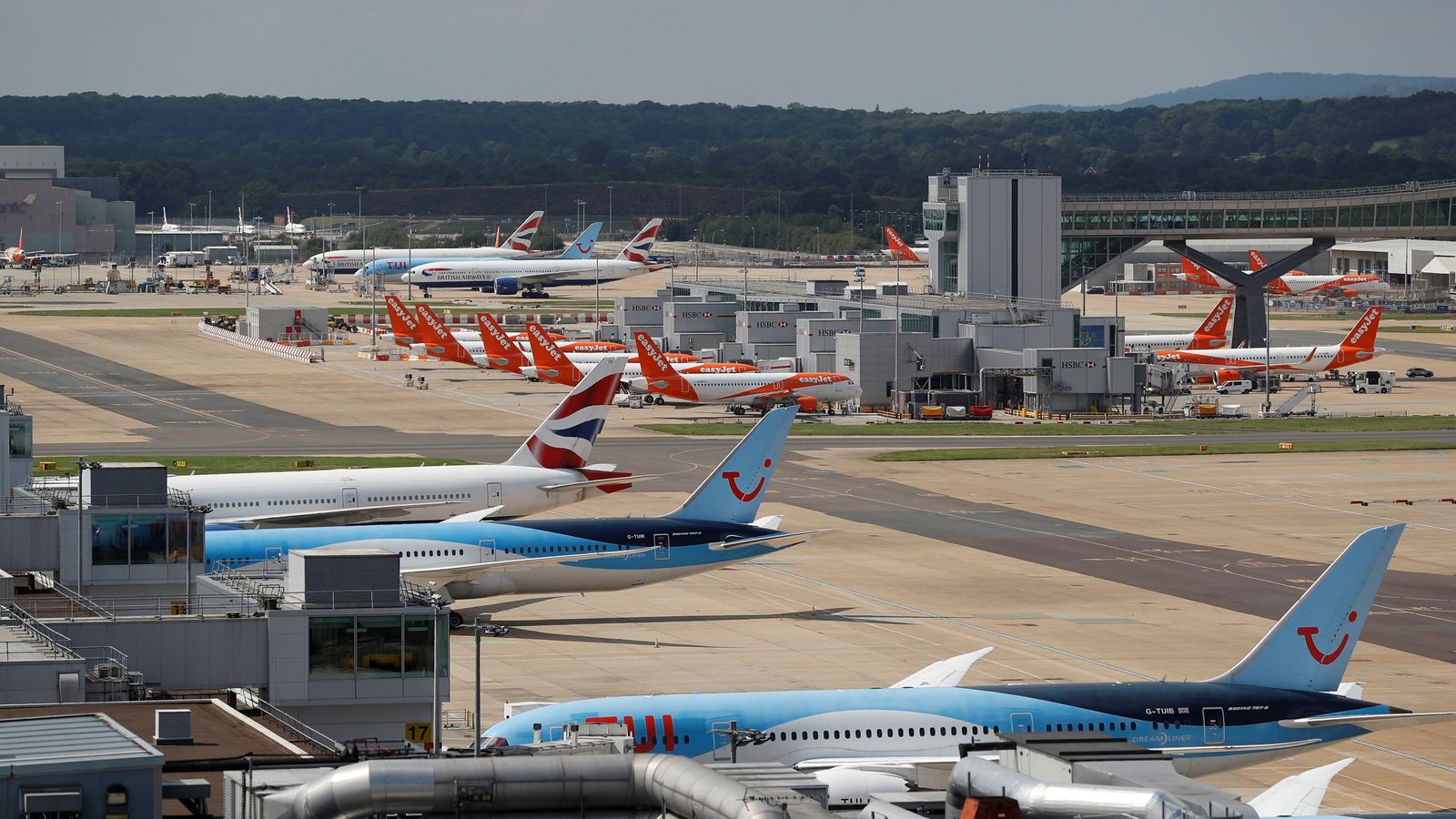Almost 1,000 workers at Gatwick Airport, including baggage handlers and check-in staff, will stage eight days of strikes from later this month.
Staff will strike in a dispute over pay, the union Unite announced, at the start of the school summer holidays.
Significant disruption, delays and cancellations are “inevitable”, the union said.
The workers will strike initially for four days beginning on Friday 28 July and ending on Tuesday 1 August.
A further four days of strikes are scheduled to take place from Friday 4 August until Tuesday 8 August.
Hundreds of thousands of flights across Europe this summer are already in jeopardy following a vote by air traffic controllers to take strike action.
Up to 12,600 flights every day – around a third of the journeys made across the continent during the peak summer holiday period – could be delayed or cancelled as a result of the industrial action.
Workers at Eurocontrol, which manages European airspace, have said they will walk out in a dispute over pay, working hours and staffing issues.
An industry source told The Times newspaper: “In a full-blown strike, 20 to 30% of flights would be at least delayed.”
The source added: “They are big numbers”.
A Eurocontrol spokesperson told Sky News that a trade union “announced a period of six months during which industrial action could take place” in its network manager operations centre.
“No specific dates for industrial action have been announced; this was a pre-warning,” they said.
The company is “actively engaging with all social partners” and is “committed to finding solutions through social dialogue”, the spokesperson added.
